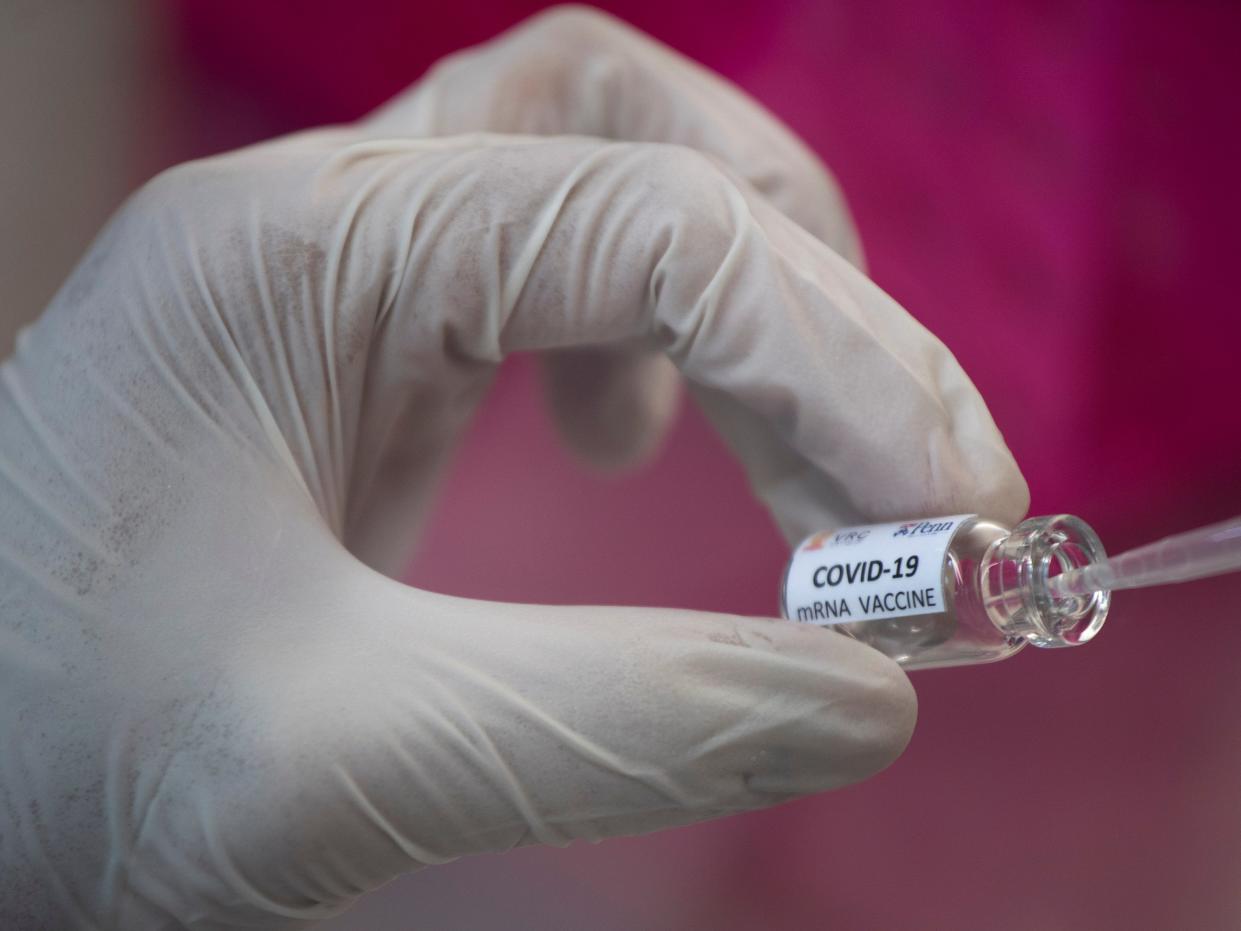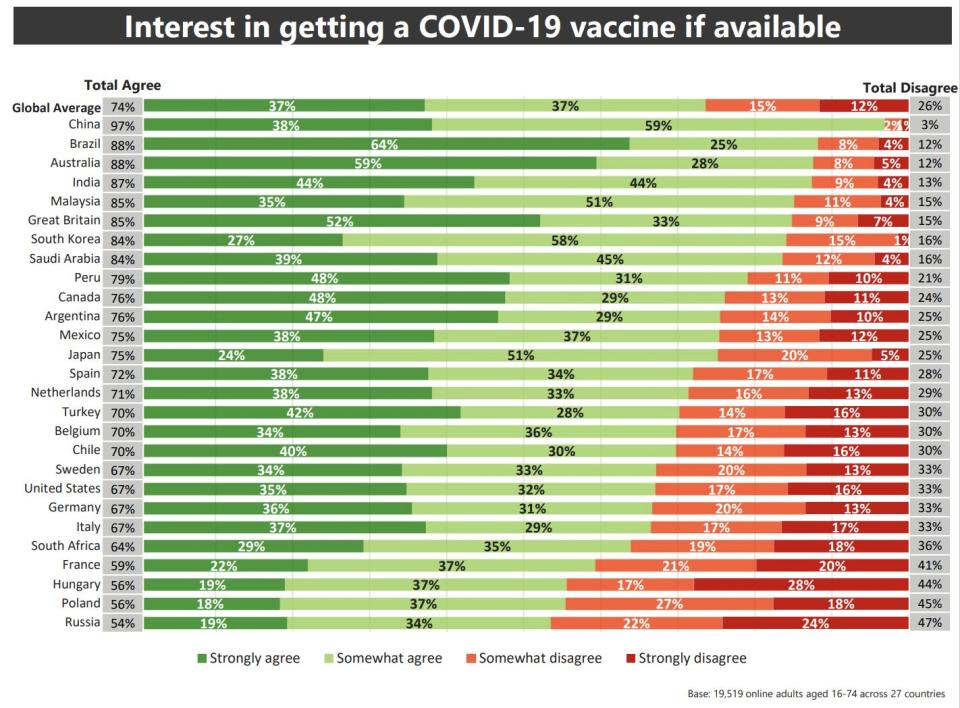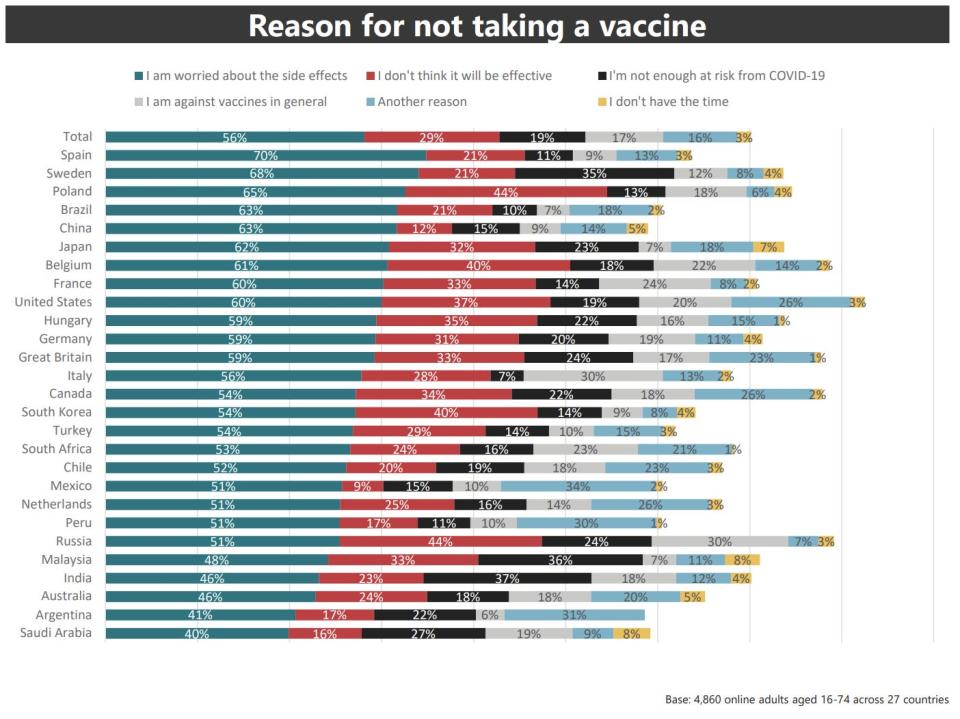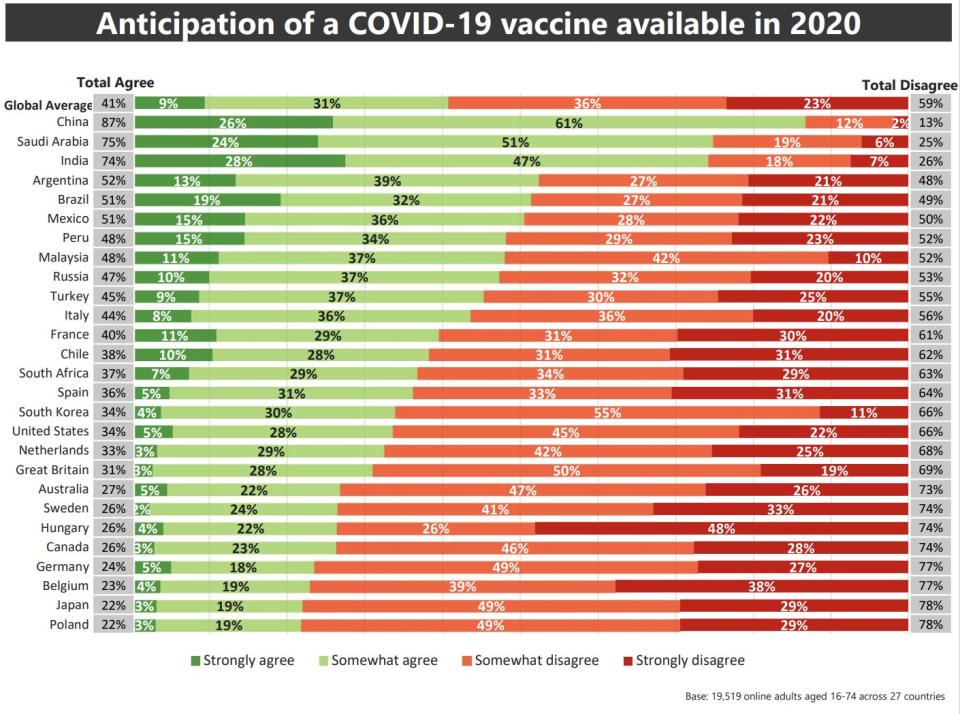3 charts show what people around world think about COVID-19 vaccines — and reveal stark differences among countries

Reuters
The market-research firm Ipsos has surveyed thousands of people across the world to learn about global attitudes toward COVID-19 vaccines.
Stark differences exist among countries.
Just 54% percent of Russians said they'd get a vaccine when one became available, whereas 97% of Chinese respondents said they'd get one.
Compared with the rest of the world, Americans were less optimistic about a vaccine coming out in 2020 and were less likely to say they'd get vaccinated.
A new poll by the market-research firm Ipsos surveyed people around the world on their attitudes toward COVID-19 vaccines, and the results reveal stark national differences when it comes to hopes that a vaccine will be available soon and willingness to get vaccinated.
Many see a vaccine as the world's chance to return to something more closely resembling normal. The World Health Organization is tracking more than 170 vaccine candidates, with nine in late-stage clinical trials. Normally, vaccines take years to develop, but scientists are hoping to cut that time down to 12 to 18 months with the coronavirus pandemic roiling the world.
But if a vaccine does arrive, it will be effective only if people agree to get the shot, and the Ipsos study found respondents varying wildly by nation on their attitudes toward vaccines.
Check out the three charts below to see how the world stacks up.
The US isn't the only country with an anti-vaxxer contingent. Germany, Italy, and Sweden tied with the US, with 33% of respondents saying they wouldn't get a vaccine if one were to become available.

World Economic Forum
China stands out as the most pro-vaccine country surveyed, with 97% of respondents saying they would get a vaccine when one became available. Russia lay at the other end of the spectrum, with nearly half of all Russians saying they didn't plan on getting vaccinated.
Russia last month approved one of its vaccine candidates for use in some patients before the completion of clinical trials, something scientists in other countries warned could erode trust in vaccines around the world should problems emerge.
Overall, 74% of people worldwide said they would get a COVID-19 vaccine.
Across the world, people who said they wouldn't get a vaccine said they were most concerned with the possibility of side effects.

World Economic Forum
The second-most-common reason: a belief the vaccine won't be effective. A lack of confidence in vaccines' effectiveness could have dire consequences for fighting the pandemic.
"The 26% shortfall in vaccine confidence is significant enough to compromise the effectiveness of rolling out a COVID-19 vaccine," said Arnaud Bernaert of the World Economic Forum, according to a press release. "It is therefore critical that governments and the private sector come together to build confidence and ensure that manufacturing capacity meets the global supply of a COVID-19 vaccination program. This will require cooperation between researchers and manufacturers and public funding arrangements that remove restrictions to vaccine access."
Most of the world is fairly pessimistic about the prospect of a vaccine being available in the next four months. Globally, 59% of people said they didn't think a vaccine would be ready by the end of 2020.

World Economic Forum
The big exception: China, where 87% of people said they did believe a vaccine would be available to them this year. Similarly optimistic countries included Saudi Arabia (75%) and India (74%).
In the US, about a third believed that a vaccine would be available by year's end.
Especially pessimistic countries included Germany (24% believe it will be available by the end of 2020), Japan (22%), and Poland (22%).
US health officials have not ruled out the approval of a vaccine this year, though distribution challenges could affect a vaccine's availability even once it's approved.
Read the original article on Business Insider

